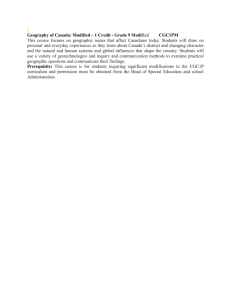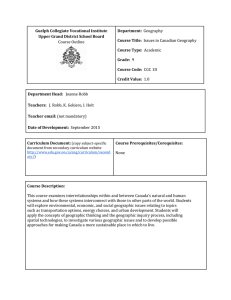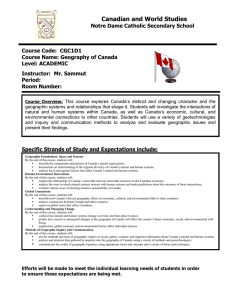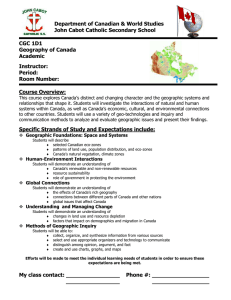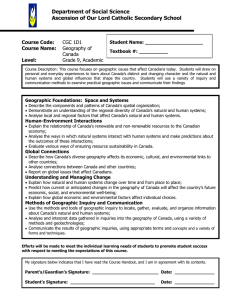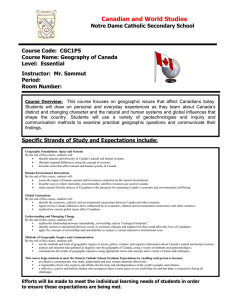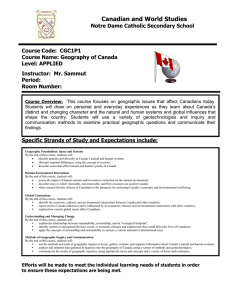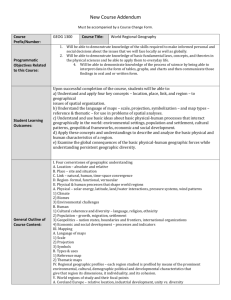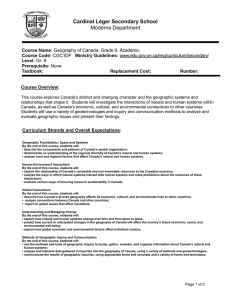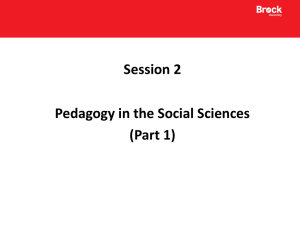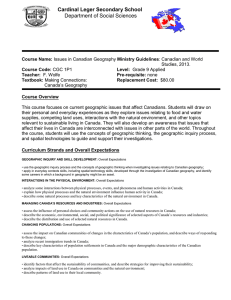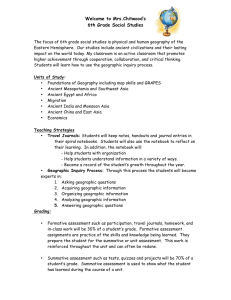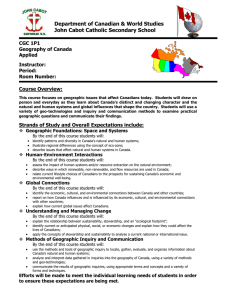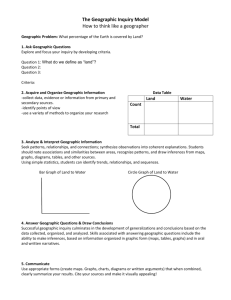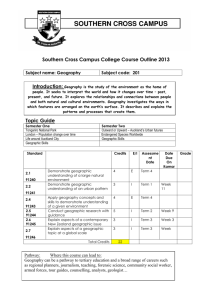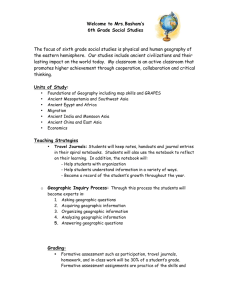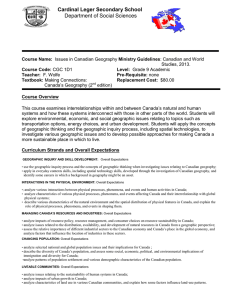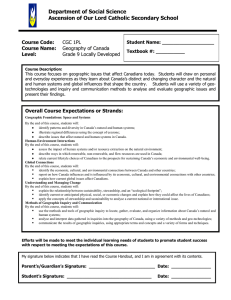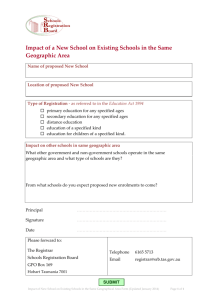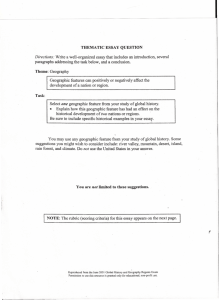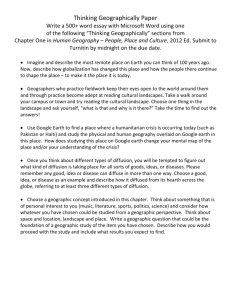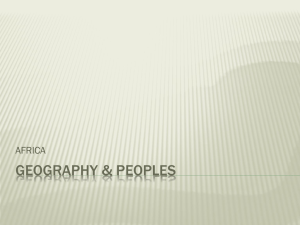Grade 9 Geography - Rosedale Heights School of the Arts
advertisement
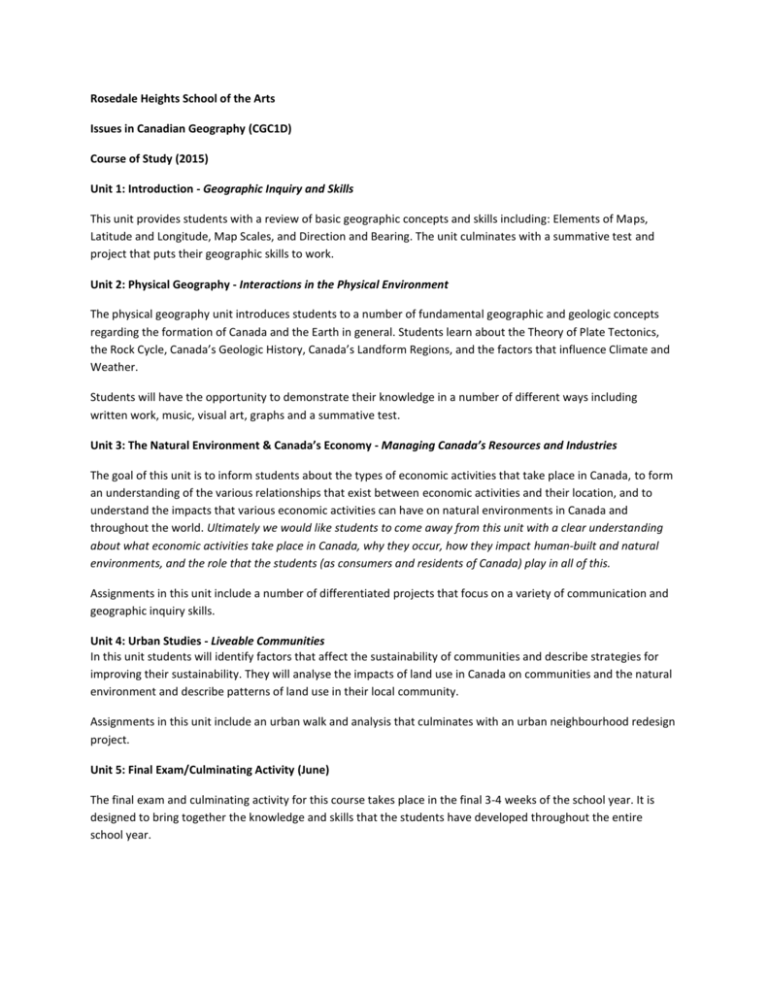
Rosedale Heights School of the Arts Issues in Canadian Geography (CGC1D) Course of Study (2015) Unit 1: Introduction - Geographic Inquiry and Skills This unit provides students with a review of basic geographic concepts and skills including: Elements of Maps, Latitude and Longitude, Map Scales, and Direction and Bearing. The unit culminates with a summative test and project that puts their geographic skills to work. Unit 2: Physical Geography - Interactions in the Physical Environment The physical geography unit introduces students to a number of fundamental geographic and geologic concepts regarding the formation of Canada and the Earth in general. Students learn about the Theory of Plate Tectonics, the Rock Cycle, Canada’s Geologic History, Canada’s Landform Regions, and the factors that influence Climate and Weather. Students will have the opportunity to demonstrate their knowledge in a number of different ways including written work, music, visual art, graphs and a summative test. Unit 3: The Natural Environment & Canada’s Economy - Managing Canada’s Resources and Industries The goal of this unit is to inform students about the types of economic activities that take place in Canada, to form an understanding of the various relationships that exist between economic activities and their location, and to understand the impacts that various economic activities can have on natural environments in Canada and throughout the world. Ultimately we would like students to come away from this unit with a clear understanding about what economic activities take place in Canada, why they occur, how they impact human-built and natural environments, and the role that the students (as consumers and residents of Canada) play in all of this. Assignments in this unit include a number of differentiated projects that focus on a variety of communication and geographic inquiry skills. Unit 4: Urban Studies - Liveable Communities In this unit students will identify factors that affect the sustainability of communities and describe strategies for improving their sustainability. They will analyse the impacts of land use in Canada on communities and the natural environment and describe patterns of land use in their local community. Assignments in this unit include an urban walk and analysis that culminates with an urban neighbourhood redesign project. Unit 5: Final Exam/Culminating Activity (June) The final exam and culminating activity for this course takes place in the final 3-4 weeks of the school year. It is designed to bring together the knowledge and skills that the students have developed throughout the entire school year. Assessment & Evaluation of Student Achievement The assessment/evaluation in this course is divided into the four categories of the Achievement Chart. The Knowledge category embraces what students know, the facts and information contained in the course. The Application category includes assessments of the students’ application of their knowledge, particularly as demonstrated through applying geographic theory and concepts to current issues in Canadian society. The Thinking/Inquiry category is used to gather assessments that demonstrate the students’ abilities to think and analyse what it is they have learned. Finally, the Communication category comprises assessments of how well the students communicate orally and in writing. Teachers must assess Learning Skills separately on the report card. Learning Skills (Homework Completion, Independent Work, Team Work, Initiative) play a critical role in the achievement of curriculum expectations. It is the school’s expectation that all assignments be submitted on time. Overall evaluation of the course is divided as follows: Term Work - 70% Exam/Culminating Activity - 30%.
